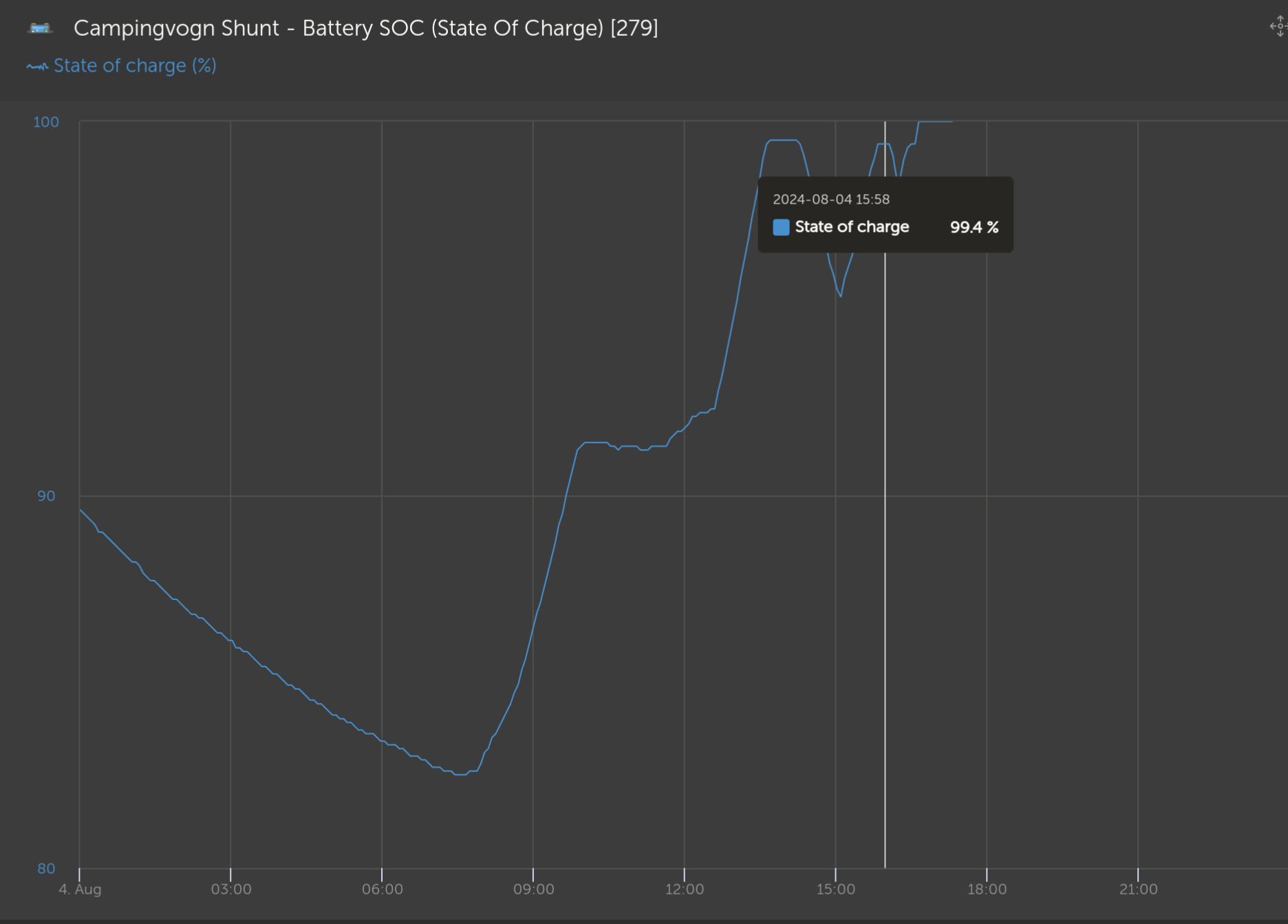 I have a installation consisting of:
I have a installation consisting of:
Cerbo GX
MPPT 100/50
Smart shunt 500A/50mV
Phoenix inverter 12/1200 230
Wire with 35 m3 between units (16 m3 from MPPT to bus)
540W of solar panels
Connection Ve-direct
The voltage on the inverter is registered around 0,17V higher than on the rest of the units, and the charging cycle is being disturbed by that information, hence activate the absorption a bit too early and lowering the SOC, despite the fact the system is set to use the information from smart shunt and everything is connected via ve-direct, even the batteries show the “right” voltage. It only happens when the inverter is in “eco” or “on”. Any suggestions or fixes?

